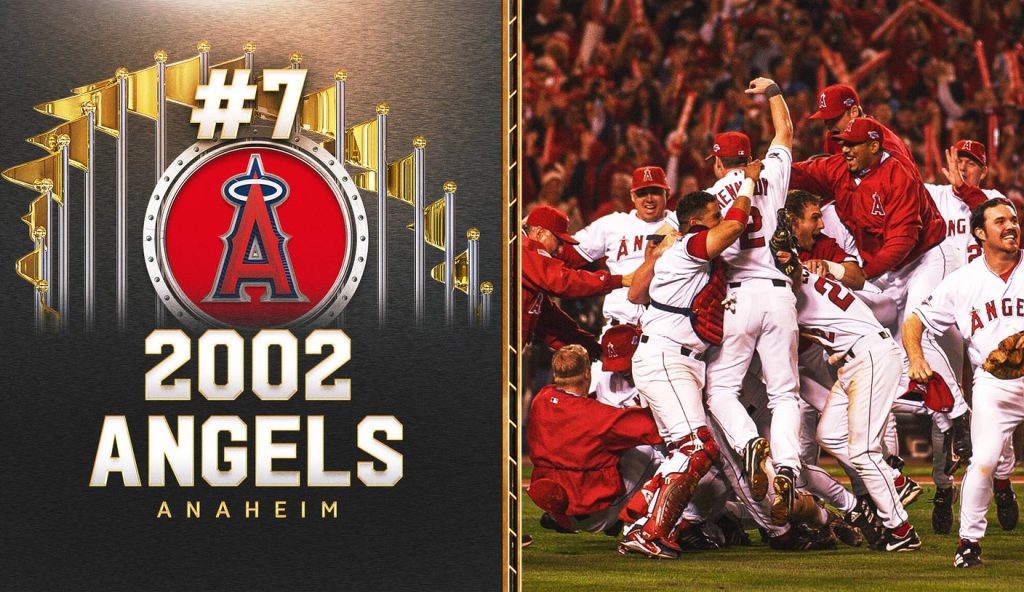Among the 25 World Series champions since 2000, how did the 2002 Angels land in this spot?
It’s easy to dismiss the excellence of the 2002 Angels based on their top two players. Darin Erstad hit just .283/.313/.389 at a time when the “Moneyball” Athletics were praised for a focus on on-base percentage. David Eckstein, all 5-foot-6 of him, hit just 8 homers in 2002: 26 players hit at least 30 that season, including Angels’ leader Troy Glaus. Power and patience were the rules of the day, but the Angels were built differently.
Erstad was not an offensive force: he was merely a superhuman-level defender in center, while offense was in the midst of its historic peak. Per Baseball Reference’s accounting, Erstad was worth 6.3 wins above replacement, the most on the Angels — his 4.2 defensive WAR represent the 12th-most ever. Erstad’s contributions to the success of the Angels’ pitchers wasn’t incalculable, but it is nigh unfathomable. As for Eckstein, he was often looked at as something of a punchline, given extra credit on a “pound-for-pound” basis because of his small size and skills that seemed old-school or centered grit. The truth is that Eckstein was a killer defensive shortstop who posted a .363 on-base percentage in 2002, third on the team behind Tim Salmon (.380) and Scott Spiezio (.371). He was the Angels’ most “Moneyball”-style player in more ways than one.
The Angels didn’t lack power or patience, not on a roster with Salmon, Glaus and Brad Fullmer on it. They also had players who excelled in one or the other, like Garret Anderson (.306/.332/.539 with 29 homers) or Spiezio, who slugged just .436 at first base but was on base constantly to make up for it, as well as the likes of Erstad and Eckstein, who just by putting on a glove made the pitching staff significantly better. And the pitching is what truly separated this team from the rest of the competition.
Jarrod Washburn and Ramon Ortiz both threw over 200 innings, with the former excelling enough to finish fourth in the AL Cy Young vote. Ortiz made up for leading the majors in home runs allowed with 40 by rarely giving up any other kind of hits, a feat made easier by the defense behind him — if it wasn’t going over the outfield fence, Erstad had a chance at it. Kevin Appier was no longer the kind of arm who could carry a staff, but as a mid-rotation starter on a championship team, he was more than qualified. Rookie starter John Lackey was a revelation from the moment he joined the team midseason: in 18 starts, Lackey produced a 3.66 ERA, effectively replacing Aaron Sele in the postseason rotation before a torn rotator cuff made that a necessity. The bullpen had ace closer Troy Percival, and rookie sensation Francisco Rodriguez.
The 2002 Angels are remembered for besting Barry Bonds’ Giants in his best chance at a World Series. They didn’t stop Bonds — no one could — but their pitching slowed the rest of the Giants enough to win the franchise’s first and only championship.
Want great stories delivered right to your inbox? Create or log in to your FOX Sports account and follow leagues, teams and players to receive a personalized newsletter daily!


